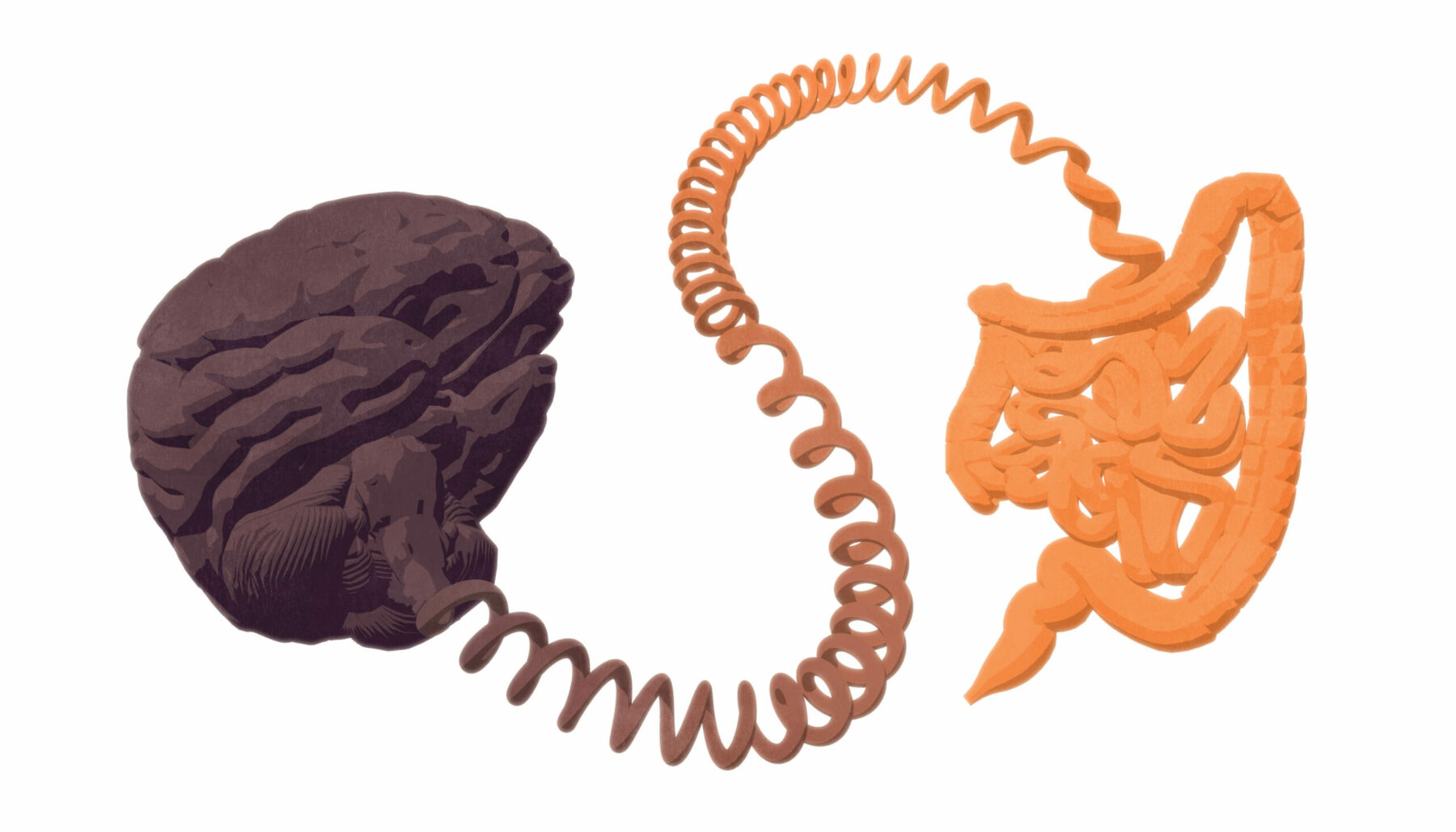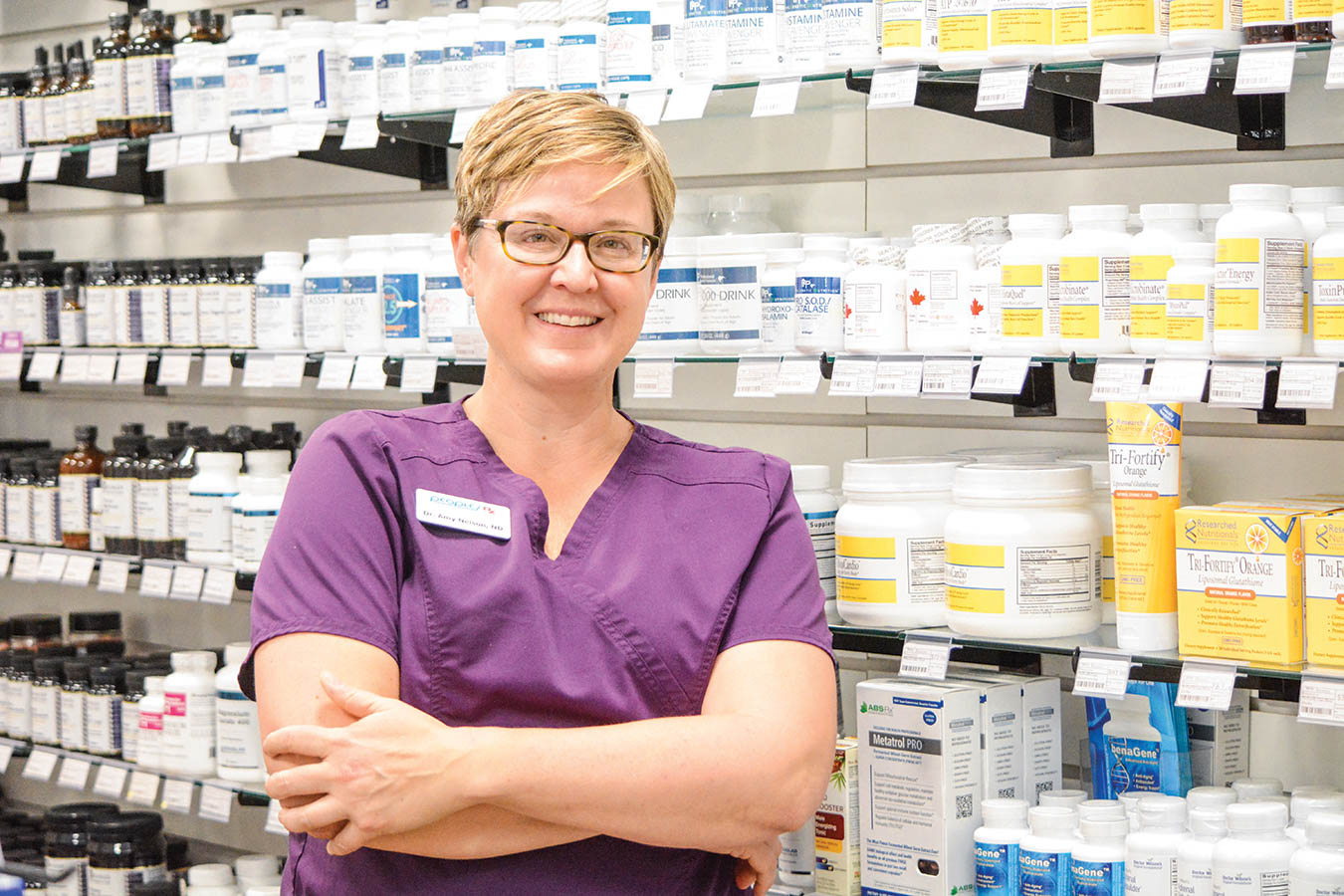How the Gut and Brain Are Connected

Since 2005, you could say this has been Amy Nelson’s focus — the connection between one’s gut and brain. In a past life, Nelson was a nuclear chemist who wanted to change careers and morph into something that helps people directly. So, from a nuclear power plant in her twenties straight into medical school, she went. Today, she works as a naturopathic physician at Peoples RX.
Ironically, our bodies are somewhat like the plant she once worked at. She says if one thing was off at a nuclear power plant, it would obviously affect everything! The same goes for your gut and brain.
“More serotonin is made in the digestive system than anywhere else,” Nelson says. “There are more nerve endings in the digestive system too.”
Let me guess, GI doctors are telling you everything looks fine, and test after test shows “normal results,” right? Or do they put you on medications that cover up your symptoms? Well, that does you just as much good as taking the batteries out of a smoke detector during a fire, Nelson says. If you’re having stomach and digestion issues, that’s your body signaling that something is wrong, and covering up symptoms doesn’t take away from the deeper-rooted problem; it simply prolongs it.

Photography credit to Katerina Cotroneo
“You need to start on the ground floor here,” Nelson says. “Think of yourself as a newborn baby, and start re-introducing foods to your body to see what works and what doesn’t.”
It’s simple — eat the foods nature intended and avoid processed foods. Nelson encourages people to step out of their comfort zone when it comes to nutrition. Test your body and see what it can and can’t handle!
Nelson says alcohol and smoking are no longer the biggest fear anymore; it’s actually fructose. High fructose corn syrup is now the number one reason for fatty liver disease, Nelson says. Obviously, you’ve heard this a thousand times but by eating healthy 95% of the time, you’ll see a difference. The 5% accounts for those times out with friends and special occasions when you may have to take an enzyme even when modifying the meal, because you can’t control everything all of the time, and that’s OK! This journey shouldn’t be overwhelming. However, the goal here is not orthorexia. Nelson makes it clear that your body needs variety; it’s like any other ecosystem — it needs diversity to survive.
As I’m someone who struggles with brain issues, Nelson shared with me that eating clean is crucial to my recovery. She says avoiding neurotoxic foods is an obvious must as well as incorporating a lot of fatty acids into the diet of anybody who may be recovering from a brain injury or may need to give their noggin a little extra love! If you eat inflammatory foods, sugary, processed, fried, etc., you’ll get brain fog and headaches, inevitably.
Our sympathetic and parasympathetic nervous systems determine your fight or flight response and calmness. According to Nelson, what you feed your body calorie-wise and carb-wise quite literally affects your entire existence. Nelson says it’s necessary to “rest and digest” as you may not effectively be digesting, which can lead to malnourishment (meaning you’re lacking key nutrients). This can result in not creating dopamine, serotonin, etc… it’s all connected! Taking care of your gut helps your brain and vice versa.
If you’re struggling with gut or brain issues, try a clean diet and test out differentiating food if you haven’t already, and/or meet with someone like Nelson who can do a panel on you and see what’s going on internally. It’s of the utmost importance to take care of your body! But particularly, if you’re struggling in one of these two areas, it’s something you don’t want to let linger. After all, we all want the same thing, don’t we? To live long healthy pain-free lives!
About the Author

Katerina Cotroneo is an author and professional photographer who uses her marketing background and talent behind the camera and has been published in Austin Fit Magazine, Authentic Texas, Waterways Magazine, Tribeza, etc. Katerina captures idiosyncratic stories through her lens and portrays diverse perspectives in her writing.






